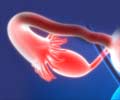Review the side-effects of Niraparib as documented in medical literature. The term "side effects" refers to unintended effects that can occur as a result of taking the medication. In majority of the instances these side-effects are mild and easily tolerable, however sometimes they can be more severe and can be detrimental.
If the side effects are not tolerable adjusting the dosage or switching to a different medication can help to manage or overcome side effects. If you have any doubts or questions, we recommend seeking advice from your doctor or pharmacist.
Common: Fatigue or asthenia, nausea, loss of appetite, insomnia, peripheral edema
Gastrointestinal: Dry mouth, problems with taste, dyspepsia, diarrhea, constipation, mucosal inflammation, vomiting, abdominal pain
Central nervous system: Dizziness, headache, anxiety, depression
Cardiovascular system: Hypertension, palpitations
Respiratory: Cough, difficulty in breathing, nasopharyngitis, bronchitis, epistaxis
Musculoskeletal: Back pain, arthralgia, muscle pain
Blood: Decreased hemoglobin, reduced number of white blood cells or platelets, acute myeloid leukemia
Others: Rash, urinary tract infection, elevated levels of liver enzymes
• It is necessary to confirm a negative pregnancy test before starting niraparib treatment as the drug may cause harm to the baby.
• In case of a missed dose, the next dose should be taken at the scheduled time.
• Do not take less or double the dose. Take exactly as directed by the treating physician.
If the side effects are not tolerable adjusting the dosage or switching to a different medication can help to manage or overcome side effects. If you have any doubts or questions, we recommend seeking advice from your doctor or pharmacist.
Common: Fatigue or asthenia, nausea, loss of appetite, insomnia, peripheral edema
Gastrointestinal: Dry mouth, problems with taste, dyspepsia, diarrhea, constipation, mucosal inflammation, vomiting, abdominal pain
Central nervous system: Dizziness, headache, anxiety, depression
Cardiovascular system: Hypertension, palpitations
Respiratory: Cough, difficulty in breathing, nasopharyngitis, bronchitis, epistaxis
Musculoskeletal: Back pain, arthralgia, muscle pain
Blood: Decreased hemoglobin, reduced number of white blood cells or platelets, acute myeloid leukemia
Others: Rash, urinary tract infection, elevated levels of liver enzymes
Other Precautions :
• Do not use niraparib capsules prescribed for others or a condition for which it is not prescribed.• It is necessary to confirm a negative pregnancy test before starting niraparib treatment as the drug may cause harm to the baby.
• In case of a missed dose, the next dose should be taken at the scheduled time.
• Do not take less or double the dose. Take exactly as directed by the treating physician.










